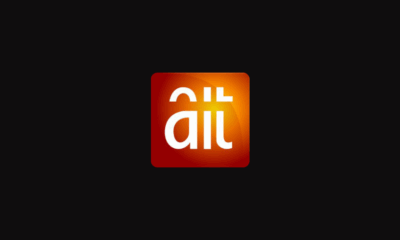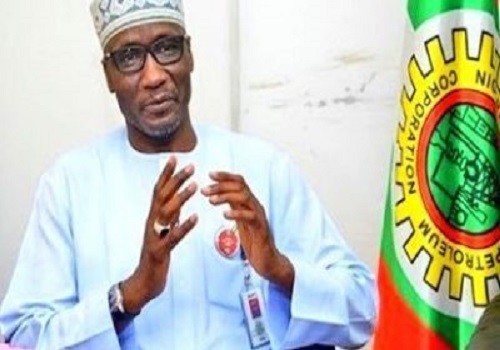Nigeria National Petroleum Company Limited (NNPCL) has acknowledged that its financial struggles may compromise the sustainability of petrol supply nationwide.
This admission follows reports of a staggering $6 billion debt to suppliers, leading to reluctance among supply agents to provide the product.
Consequently, NNPCL has resorted to rationing stocks and urging major suppliers to continue deliveries despite payment concerns.
A major supplier revealed that at least five vessels destined for Nigeria refused to unload fuel due to fear of non-payment.
The Federal Government’s $300 million bailout has proven insufficient to sustain nationwide petrol supply.
The crisis resulted in severe fuel scarcity yesterday, with only a few filling stations dispensing petrol. Motorists in Lagos, Abuja, and other cities faced lengthy queues, highlighting the urgency of the situation.
Independent marketers took advantage of the situation to sell a litre of petrol for as high as N950 in some parts of Lagos. It sold for more in other states.
There were indications that the Federal Government was weighing options.
The NNPCL admitted the financial strain in a statement by its Chief Corporate Communications Officer, Olufemi Soneye.
“NNPC Ltd has acknowledged recent reports in national newspapers regarding the company’s significant debt to petrol suppliers.
“This financial strain has placed considerable pressure on the company and poses a threat to the sustainability of fuel supply.
“In line with the Petroleum Industry Act (PIA), NNPC Ltd remains dedicated to its role as the supplier of last resort, ensuring national energy security.
“We are actively collaborating with relevant government agencies and other stakeholders to maintain a consistent supply of petroleum products nationwide,” Soneye said.
“The Federal Government is already weighing options because of the security implications of acute shortage of petrol in the country.”
On Saturday, Soneye said in the oil trading business, transactions often operate on credit with intermittent outstanding balances, saying there was nothing extraordinary in the outstanding financial liabilities.
He was reacting to reports by Reuters that the uncertainty over the payment of the $6 billion has made most suppliers “hesitant” in bringing in products.
The international news agency had indicated that Afreximbank disbursed $925 million to NNPCL as part of a syndicated $3.3 billion crude oil-backed prepayment facility.
The NNPCL, using supply agents, has been the sole importer of petrol.
The NNPCL is “struggling to supply dealers due to shortage of product at its tanks”, a source confirmed at the weekend.
The source said: “Bulk sales of ships and trucks to depot owners have slowed down in the last five days due to a shortage of supply.
“No bulk sales had happened since Tuesday, which heightened the scarcity in the downstream sector.”
An oil chief who is in the know of the goings-on in the industry linked the fuel queues being experienced in the last eight weeks “largely to the reduction in the supply of products by suppliers who were being owed.”
“I was aware that at some point in mid-August, the Federal Government had to come in by giving money to NNPC to defray some of the outstanding liabilities and boost the confidence of the suppliers to continue.
“However, what was paid was about $300 million which only helped in getting a reprieve for about a week before the queues fully returned,” he said.
Another source said: “Suppliers of petrol are hesitant about supplying new products to the Nigeria National Petroleum Company Limited (NNPCL) due to piling debts.
“At present at least five vessels originally intended for supply to Nigeria have refused to discharge fuel to NNPCL due to fear of payment.
“The situation has increased pressure on the petroleum company which has now resorted to rationing the stock it has while appealing to its long-term suppliers not to halt supplies.”
Reuters said: “Nigeria’s debt to gasoline suppliers has surpassed $6billion – doubling since early April – as state oil firm NNPCL struggles to cover the gap between fixed pump prices and international fuel costs, under rising cost of living.”
The agency said the company had still not paid for some January imports, and the late payments amount to $4 billion to $5 billion.
Under contract terms, NNPCL is meant to pay within 90 days of delivery.
“The only reason traders are putting up with it is the $250,000 a month (per cargo) for late payment compensation,” one industry source said.
The news agency said: “At least two suppliers already stopped participating in recent tenders after hitting self-imposed debt exposure limits to Nigeria, the sources said, meaning they will not send more gasoline until they receive payments.
“Nigeria’s tenders to buy gasoline in June and July were smaller, traders said. NNPC will import via tender about 850,000 tonnes in July, two of the sources said, down from the typical one million tonnes in previous months.”
On August 19, the oil giant claimed the government has been moderating the average retail price of petrol, with a view to ensuring that Nigerians have access to it at a stable price.
The NNPCL said it has been making PMS available for retail distribution at about half of the landing cost under an agreement with the government to safeguard Nigerians from the global fluctuation in oil prices.
Its Chief Financial Officer Umar Ajiya explained that the company has been offsetting the shortfall in landing price and sale price through a reconciliation arrangement between the government and the company.
He said the company has not paid any money to any marketer in the name of petrol subsidy in the last eight to nine years.
While the official pump price of petrol is about N600 per litre, the average landing cost is about N1,200.
The Minister of State for Petroleum (Oil), Senator Heineken Lokpobiri, said the NNPC Limited needed to adjust its pricing strategy for imported fuel to curb smuggling.
He also admitted that NNPCL had financial constraints in maintaining and rebuilding Nigeria’s ageing pipelines.
Lokpobiri said the weak pipelines are susceptible to vandalism.
Lokpobiri, who spoke at the 2024 Energy and Labour Summit in Abuja, said selling imported fuel below the landing cost is a key factor fueling smuggling activities.
He said: “If NNPC imports PMS and sells to marketers at perhaps N600 or below, there’s no way that smuggling can stop.
“When smugglers are taking the products outside the country, even if you put all the policemen on the road, they are Nigerians; you and I know the answer.
“These pipelines, some dating back to the 1960s and 1970s, are highly susceptible to vandalism and crude oil theft, which significantly impacts the nation’s oil revenue.
“The old, corroded pipelines, some of which date back to the 1960s and 1970s, are easily vandalised,” Lokpobiri explained.
Former Vice President Atiku Abubakar yesterday urged the Federal Government to ensure the immediate listing of NNPCL shares on the stock exchange in line with the Petroleum Industry Act.
He was reacting in a statement yesterday by his media office on the decision of the NNPCL to hand over the Warri and Kaduna refineries to private operators who are expected to manage and operate them.
Atiku emphasised that such previous efforts under government supervision never worked.
The statement reads: “The NNPCL is supposed to have been listed on the stock exchange in line with the Petroleum Industry Act.
“This would make the company more profitable and enhance transparency and corporate governance.”

 BIG STORY2 days ago
BIG STORY2 days ago
 BIG STORY2 days ago
BIG STORY2 days ago
 BIG STORY2 days ago
BIG STORY2 days ago
 BIG STORY1 day ago
BIG STORY1 day ago
 BIG STORY11 hours ago
BIG STORY11 hours ago
 BIG STORY1 day ago
BIG STORY1 day ago
 BIG STORY1 day ago
BIG STORY1 day ago
 BIG STORY5 hours ago
BIG STORY5 hours ago



















